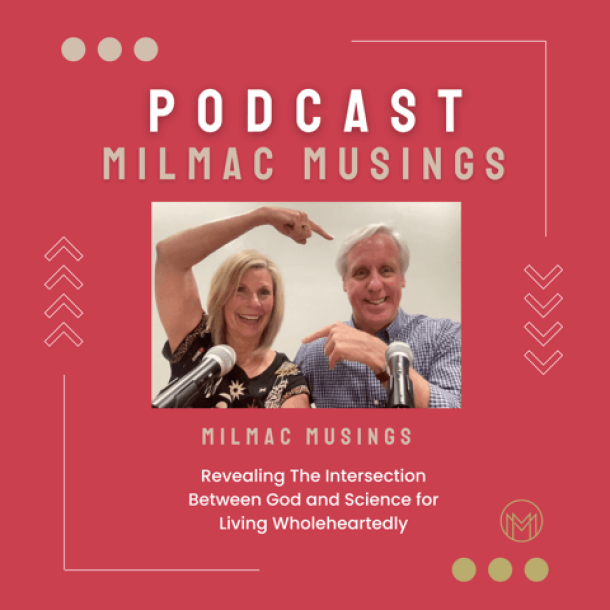Trusting God with His Plan after trauma is hard, especially if you have experienced complex trauma. BUT it is possible because He empowers you at every moment as you yield to His will.
This is the fourth post of a blog series offering practical steps rooted in Christ and biblical principles to help you build resilience and trust in God's plan. Following these steps, you'll learn to navigate life's trials with faith and confidence, leaning on Christ's everlasting support.
If you missed it, click to read Understanding Biblical Resilience, the first post in this series.
If you missed it, click to read Building A Resilient Faith: Jesus Our Model, the second post in this series.
If you missed it, click to read Trusting God, the third post in this series.
Trusting God With His Plan
“My thoughts are nothing like your thoughts,” says the Lord. “And my ways are far beyond anything you could imagine. For just as the heavens are higher than the earth, so my ways are higher than your ways and my thoughts higher than your thoughts. -Isaiah 55:8-9 NLT
What is God Thinking About What You've Been Through?
After the wounds of abuse and broken boundaries, it can be challenging to want to run into the arms of God. Often, the inclination is to run away from Him, asking, "How could God let this happen to me?"
One in four girls and one in six boys are sexually wounded before turning eighteen years of age.
Many of these children grow into adults without ever having someone come beside them to help them heal. With that said, it's safe to say that we have many traumatized people sitting in the chairs of our congregations. If you are one of those people, we understand. Did you:
- Remain silent about what you endured?
- Try to tell and no one believed you?
- Never hear a helping word from a pulpit?
- Never hear what God has to say about such evil that shapes one's life?
You may have experienced abuse at the hands of one within the church you attend. If you still attend church, you are of great courage. At Destined for Glory, we are a voice helping you build a resilient life after trauma. You might ask, What is trauma?
Trauma Means Wound
Trauma means "wound," so trauma is a wound to the mind, the heart, and the soul. Abuse, whether sexual, domestic, emotional, war, trafficking, or genocide, means "to use wrongly." In essence, abuse means to misuse someone. And abuse always leaves its imprint on the mind, heart, soul, and sometimes the body. It causes suffering to the whole person.
Trauma turns your world upside down.
It changes everything about how you see God: His character, faithfulness, purposes, and capacity to keep you.
It is shattering to your soul.
What you have been through is not God's plan for you. But He does offer a way for you to heal from the evil that has entered your life.
Real Stories of Trauma
Lisa was 2 when her biological dad started using her sexually for his satisfaction.
Mary was 11 when her friend's dad began violating her on the back porch while others played.
Cara was only 5 when she excitedly ran into Sunday School, only to be scooped up into the darkness and left crumpled on the floor alone.
Faith was gang-raped at 11, reported it to the police, and they did not believe her.
The above stories are not made up. They are real, and I am overjoyed to share that each of them is well into their healing journey. You may know someone or be someone who has a similar story.
How God Sees You After Trauma
It can be challenging to grasp how God sees you during your pain. The trauma you have endured may have distorted your view of yourself and God. However, God's vision of you is far from the distorted reflections left by trauma. Here is how God truly sees you:
- His Beloved Child: Regardless of the abuse you've suffered, you are God's beloved child. He loves you unconditionally and is always reaching out to embrace you with His love and grace.
- Valuable and Worthy: Your worth is not defined by the trauma you have endured. God sees you as invaluable and worthy of His love, care, and blessings. He created you with a unique purpose and immense value.
- Strong and Courageous: Surviving trauma takes immense strength and courage. God recognizes your resilience and fortitude. He is your strength and will sustain you throughout your healing journey.
- Beautiful and Whole: Despite the brokenness you might feel, God sees you as beautiful and whole. He is committed to healing your wounds and restoring you to a place of wholeness and peace.
- Forgiven and Redeemed: If you carry guilt or shame from your past, remember that God’s grace covers you. He offers forgiveness and redemption, freeing you from the burden of past pain and mistakes.
- Chosen and Called: God has chosen you and called you by name. He has a plan and a purpose for your life that goes beyond your trauma, and He is guiding you toward a future filled with hope and promise.
- Never Alone: God sees you in your darkest moments and assures you that you are never alone. His presence is constant, providing comfort, guidance, and unwavering love.
Understanding how God sees you can transform your journey of healing. Embrace His vision of you as His beloved, valuable, strong, and courageous child. Let His love and grace redefine your identity and guide you toward complete restoration.
Finding Healing in God's Love
Healing from trauma and trusting God with His plan is a journey. Here are some ways to find healing in His love:
Seek His Presence: Spend time in prayer and meditation, inviting God into your healing process. Allow His presence to guide and comfort you.
Connect With A Supportive Community: Surround yourself with people who understand and support your healing journey. This could be a church group, a support group, or trusted friends and family.
Engage in Professional Counsel or Trauma Coaches: Seek out a Christian counselor or Trauma Coach who can help you navigate your trauma through a faith-based perspective. Professional guidance can be crucial in processing and healing deep wounds.
Immerse Yourself in Scripture: The Bible is filled with promises of healing, love, and restoration. Regularly read and meditate on scriptures that affirm God's love and His plans for your healing.
Practice Forgiveness: Forgiveness is a powerful step towards healing. While it may be incredibly challenging, forgiving those who have wronged you can free you from the hold of past trauma and open your heart to God's healing.
God's ways are higher than ours, and His thoughts are higher than ours. While we may not understand the reasons behind the trauma we’ve experienced, we can trust that God sees us with eyes of love, value, and healing. He is our refuge and strength and promises to restore us to wholeness.
It is our responsibility as the Body of Christ to create a safe and supportive environment for those who have endured trauma. We must acknowledge the pain, provide resources for healing, preach messages of hope and restoration, and equip our leaders to respond with compassion and care.
When faced with the difficult question of why God allowed such trauma to happen, it's essential to be honest and compassionate—answering when we don't know how we can cause more harm by adding to their confusion and pain rather than affirming God's unwavering love and presence.
At Destined for Glory, we are committed to walking with you on your healing journey and helping you see yourself through God's eyes. You are beloved, valuable, whole, and courageous in His sight. Trust in His plan and find peace in His presence, knowing He is always with you, ready to heal and restore your heart, mind, soul, and body.
If you are not a victim of trauma but know someone who is, you can play a crucial role in their healing journey. Offer a listening ear and validate their experiences without judgment. Please encourage them to seek professional counseling and spiritual support. Please educate yourself about trauma to understand their struggles and needs better. Be patient and compassionate, offering practical help, such as accompanying them to appointments or providing a safe space to talk. Above all, pray for them and remind them of God's unwavering love and presence in their lives. Your support can significantly impact their path to healing and restoration.







